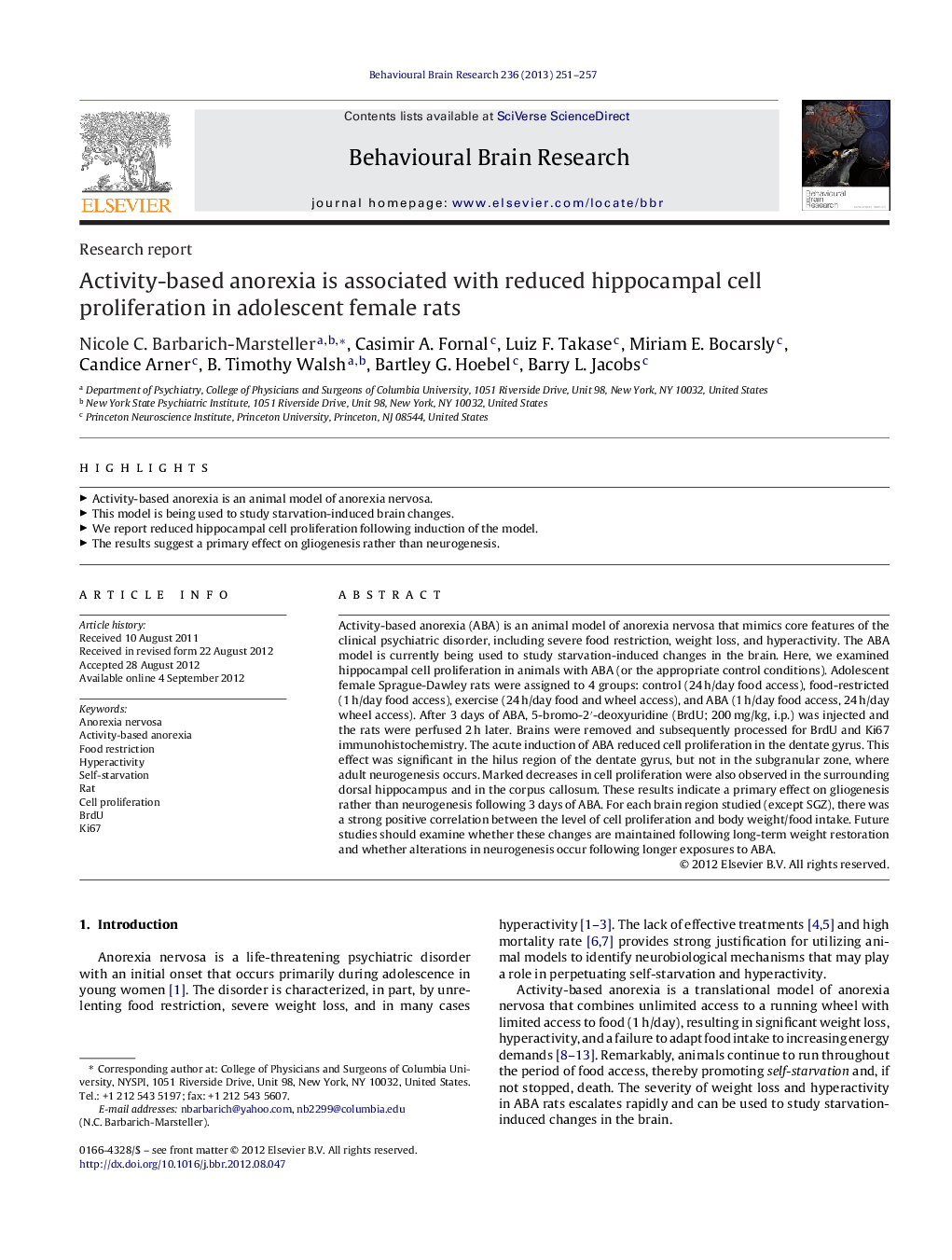| Article ID | Journal | Published Year | Pages | File Type |
|---|---|---|---|---|
| 6259489 | Behavioural Brain Research | 2013 | 7 Pages |
Activity-based anorexia (ABA) is an animal model of anorexia nervosa that mimics core features of the clinical psychiatric disorder, including severe food restriction, weight loss, and hyperactivity. The ABA model is currently being used to study starvation-induced changes in the brain. Here, we examined hippocampal cell proliferation in animals with ABA (or the appropriate control conditions). Adolescent female Sprague-Dawley rats were assigned to 4 groups: control (24Â h/day food access), food-restricted (1Â h/day food access), exercise (24Â h/day food and wheel access), and ABA (1Â h/day food access, 24Â h/day wheel access). After 3 days of ABA, 5-bromo-2â²-deoxyuridine (BrdU; 200Â mg/kg, i.p.) was injected and the rats were perfused 2Â h later. Brains were removed and subsequently processed for BrdU and Ki67 immunohistochemistry. The acute induction of ABA reduced cell proliferation in the dentate gyrus. This effect was significant in the hilus region of the dentate gyrus, but not in the subgranular zone, where adult neurogenesis occurs. Marked decreases in cell proliferation were also observed in the surrounding dorsal hippocampus and in the corpus callosum. These results indicate a primary effect on gliogenesis rather than neurogenesis following 3 days of ABA. For each brain region studied (except SGZ), there was a strong positive correlation between the level of cell proliferation and body weight/food intake. Future studies should examine whether these changes are maintained following long-term weight restoration and whether alterations in neurogenesis occur following longer exposures to ABA.
⺠Activity-based anorexia is an animal model of anorexia nervosa. ⺠This model is being used to study starvation-induced brain changes. ⺠We report reduced hippocampal cell proliferation following induction of the model. ⺠The results suggest a primary effect on gliogenesis rather than neurogenesis.
